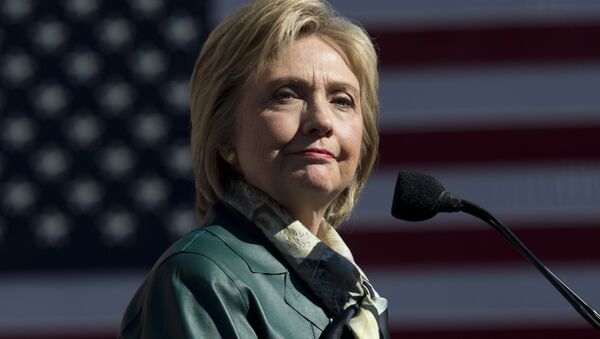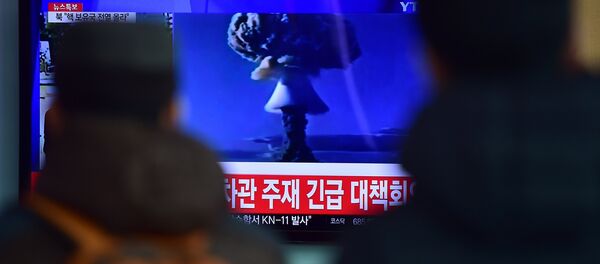When asked whether this was a realistic scenario, Vladimir Sazhin said that the stiff economic and financial sanctions imposed on Iran by the US and its western allies eventually persuaded Tehran to sign a mutually-agreed compromise over its nuclear development program.
“According to Jake Sullivan, the head of the Hillary Clinton campaign’s foreign policy advisory team, the idea is to bring maximum pressure to bear on Pyongyang to force it to meet the Western demands,” Sazhin told Sputnik.
Jake Sullivan was the man who began secret negotiations with Tehran in 2012 which eventually resulted in the July 14, 2015 agreement between the Islamic Republic and the five permanent members of the UN Security Council – China, France, Russia, Britain and the US.
When asked if a similar scenario could work when dealing with North Korea, he said that he didn’t think so.
“Iran and North Korea are two worlds apart, politically, ideologically, socially and economically. Hard hit as it was by international sanctions Iran didn’t find itself completely isolated from the rest of the world. Its economy kept developing and integrating with the global economic system, oil production and export was going up along with the people’s incomes,” Sazhin noted.
The ideological doctrine of neo-Shiism of [the leader of the Islamic Revolution Ayatollah] Homeini did not rule out individual prosperity and the state’s care for its citizens.
The North Korean Juche ideology hinges on a country’s complete isolation from the outside world, barrack-style collectivism, asceticism and self-containment, which means that stiffer sanctions, which are already in place, will hardly result in a compromise the international community clinched with Iran.
Moreover, North Korea has a powerful sponsor – China — which accounts for over 70 percent of the country’s foreign trade turnover.
Mr. Sullivan said that if elected Hillary Clinton would insist that China bring pressure to bear on Pyongyang. However, unhappy as it may be about Pyongyang’s recent nuclear and missile tests, Beijing will hardly use any hard-hitting sanctions against its ally.
In its bid to become a full-fledged nuclear power, North Korea is not constrained by any legally-binding agreements. Even though the 2015 deal with Iran inspired hope that North Korea might follow suit, Pyongyang was quick to rule out any intention to follow Tehran’s example.
Fully aware of the importance of a solution to the North Korean nuclear problem, Russia is ready to restart the six-way talks with the US, China, Japan and the two Koreas.
“The talks, if they ever happen, would prove much more complicated than in the case of Iran. No direct analogue of the Iranian scenario is possible of course, but the experience obtained by the P5+1 in their dialogue with Tehran could certainly prove priceless,” Vladimir Sazhin said in conclusion.



